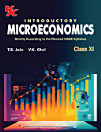Preference, Value, Choice, and Welfare
આ ઇ-પુસ્તક વિશે
લેખક વિશે
Daniel M. Hausman is the Herbert A. Simon Professor of Philosophy at the University of Wisconsin-Madison. He was educated at Harvard and Cambridge Universities and received his Ph.D. in 1978 from Columbia University. His research has centered on epistemological, metaphysical and ethical issues at the boundaries between economics and philosophy. He co-founded the Cambridge University Press journal Economics and Philosophy with Michael McPherson and co-edited it from 1984–1994. He is the author of Capital, Profits, and Prices (1981), The Inexact and Separate Science of Economics (1992), Causal Asymmetries (1998) and Economic Analysis, Moral Philosophy, and Public Policy (2006, with Michael McPherson), among other titles. He has published more than 130 essays in academic journals in philosophy and economics. In 2009, Professor Hausman was elected to the American Academy of Arts and Sciences.






